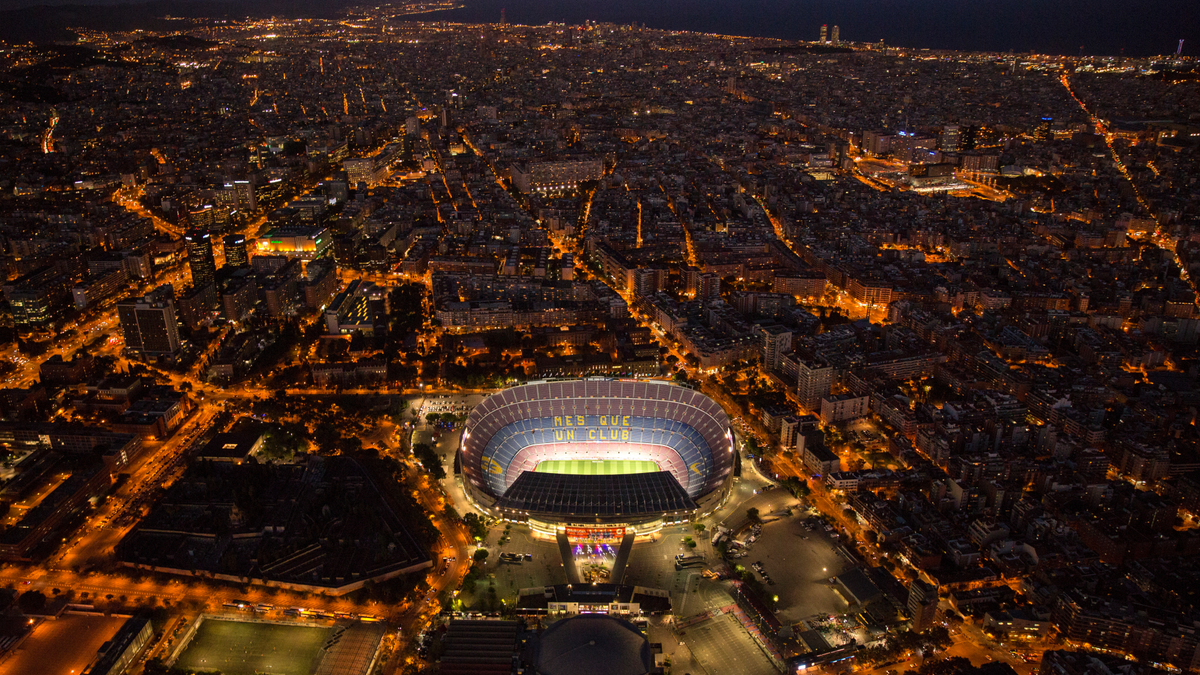
BARCELONA, Spain – Politics and soccer will merge Sunday as Barcelona becomes more than just a football club for Catalonia's separatists.
Barcelona's home match against Las Palmas falls on the day when the region's secessionist leaders have vowed to defy authorities and hold a disputed referendum on independence from the rest of Spain.
The Spanish government calls the vote illegal and has ordered a crackdown to stop any ballots from being cast, sparking protests in the streets and universities.
The dispute has increased tensions in the proud and prosperous region to fever pitch — and Barcelona's Camp Nou will be no exception.
"It won't be a normal day, it will be a historic day for the country, but we have to treat the football match like any other," Barcelona vice president Jordi Cardoner said. "We will carry the Catalan flag's (red and yellow) colors on the collars of our shirts and in our hearts."
Europe's largest stadium at nearly 100,000 seats, Camp Nou has become a rallying point for Catalan nationalists in recent years with the boom in support for a break from Spain that polls show has reached roughly half of the region's 7.5 million residents.
Spain's King Felipe VI met with deafening jeers at Camp Nou at the final of the Copa del Rey in 2015, and the chants of "Independence!" that are a fixed feature of every home match are set to be at maximum volume come Sunday.
Given the super-charged atmosphere, the club has called for calm and for the spirit of sport to prevail.
"We are not uncomfortable with the date of the match. It's an important day for Catalonia and the interests of Barca have to be compatible with the majority of Catalans," said Cardoner. "I believe that each one of our members and fans can express whatever they want, but we ask them to do it respectfully. We are focusing on the competition. We all want to win the match."
Barcelona defender Gerard Pique is also giving advice.
"From today until Sunday we will express ourselves pacifically," Pique said Thursday on Twitter. "Don't give them any excuse (for a crackdown). That's what they want. And sing loud and clear."
Pique and the rest of Barcelona's players have good reason not to get distracted by the whirlwind of politics and police activity. The team is on an eight-game winning run, leads the league, and holds a seven-point advantage over fierce rival Real Madrid in sixth place.
Barcelona's football club became identified as a bastion of Catalan culture during the repressive years of Gen. Francisco Franco's dictatorship from 1939-1975, when the Catalan language, which is spoken alongside Spanish, was banned from schools and public use. Its slogan "More than a club" has come to mean for many its commitment to Catalonia.
In the past four decades Catalonia has gained a large degree of self-governance and boasts one of the strongest economies of the southern European country. Still, many Catalans feel disrespected by the central government in Madrid and complain that they pay more in taxes than they receive back in public spending.
Barcelona's rivalry with Real Madrid carries political overtones for many, with "Barca" representing Catalonia and Real Madrid standing in for the rest of Spain.
Most of Barcelona's players avoid talking about politics but former player and coach Pep Guardiola has led pro-independence rallies and is an outspoken proponent of Sunday's vote.
"This isn't about independence, it's about democracy," Guardiola, the current Manchester City manager, said in a video posted on social media by a separatist grassroots group this week.
Barcelona has openly backed a referendum and criticized the robust steps taken by authorities to impede the vote that Spain's government considers unconstitutional since questions of state should involve all Spaniards, not just those in one region.
Many Catalans are lukewarm supporters at best of Spain's national team, which would lose several key players, including Pique, Sergio Busquets and Jordi Alba, if Catalonia separated.
Catalonia already has a regional selection that plays the occasional friendly. It got a huge boost when it was coached by Dutch great Johan Cruyff, and it has played top-level national sides including Argentina and Brazil.
Police have decreased the chances of separatists being able to hold a wide-scale vote, which pro-union parties have boycotted on grounds that it is outside the law and lacking in guarantees of transparency.
But Barcelona's alignment with the separatist cause is in direct conflict with its desire to remain one of the world's most successful soccer teams.
Not only would Barcelona run the risk of alienating supporters across Spain, the big fear is the potential flight of its top stars, led by Lionel Messi.
Spanish league president Javier Tebas and Spain's Higher Council of Sport have repeatedly warned that Barcelona and the other football clubs in Catalonia would be out of La Liga if the region seceded.
Tebas recently said that Barcelona would be in a Catalan division that "wouldn't be much better than the Dutch league."
